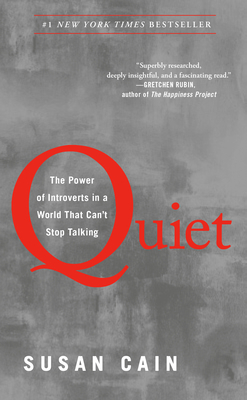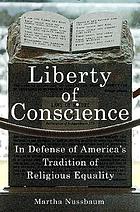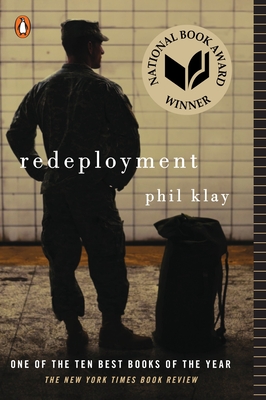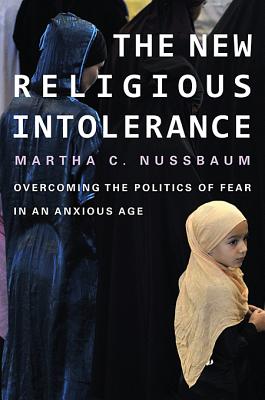Fear and self-loathing in Gaza | @SelmaDabbagh reviews "Vanished" by @masoud_ahmed http://t.co/qdvtkH9ges pic.twitter.com/fSMlxzXlhd
— Electronic Intifada (@intifada) August 4, 2015
I have not read the book.
Tuesday, August 04, 2015
Review: Fear and Self-Loathing in Gaza by Ahmed Masoud
Help Documentary "(T)ERROR" Cover Legal Expenses and Insurance Costs
Update: Feb 15, 2016: This documentary is airing on PBS's Independent Lens, February 22, 2016.
A major theme of this blog has been criticism of the Global War on Terror (GWOT), in both its international and domestic forms. I hope this documentary film will be another tool to change the current policies of the United States government, but the filmmakers need your help to reach a wider audience.
Here's the link to the Kickstarter project.
A major theme of this blog has been criticism of the Global War on Terror (GWOT), in both its international and domestic forms. I hope this documentary film will be another tool to change the current policies of the United States government, but the filmmakers need your help to reach a wider audience.
TERROR Documentary is facing unprecedented legal obstacles, and there is now a danger WE WON'T BE ABLE TO RELEASE THE...
Posted by TERROR Documentary on Friday, July 31, 2015
Here's the link to the Kickstarter project.
Monday, July 27, 2015
Film: A Girl Walks Home Alone at Night
Now roaming the streets of BFI Player, the "first Iranian vampire western" http://t.co/BzOYQAntNu pic.twitter.com/g2TQZA1HRu
— BFI (@BFI) July 27, 2015
I have not seen the movie.
Sunday, July 26, 2015
Veronica Mars, Un-American Graffiti: The White Perpetrator is Forgiven
 In "Un-American Graffiti," episode S3E16 of Veronica Mars, a brother of a veteran wounded in Iraq vandalizes "Babylonian Gardens," a restaurant run by naturalized US-citizen "Arabs," no nationality mentioned. There are a number of ethnic stereotypes and tropes the episode uses which I hope producers and writers will avoid in the future. But, in the wake of the Charleston massacre, there's a larger issue of the portrayal of non-white victims of white perpetrators' hate crimes.
In "Un-American Graffiti," episode S3E16 of Veronica Mars, a brother of a veteran wounded in Iraq vandalizes "Babylonian Gardens," a restaurant run by naturalized US-citizen "Arabs," no nationality mentioned. There are a number of ethnic stereotypes and tropes the episode uses which I hope producers and writers will avoid in the future. But, in the wake of the Charleston massacre, there's a larger issue of the portrayal of non-white victims of white perpetrators' hate crimes.Sunday, July 19, 2015
Review: The Condemnation of Blackness: Race, Crime, and the Making of Modern Urban America by Khalil Gibran Muhammad
The Condemnation of Blackness: Race, Crime, and the Making of Modern Urban America by Khalil Gibran Muhammad
I reviewed this book through a series of Twitter status updates using the hashtag #coblackness.
Publishers's description: Lynch mobs, chain gangs, and popular views of black southern criminals that defined the Jim Crow South are well known. We know less about the role of the urban North in shaping views of race and crime in American society.
I've quoted extensively from the last 200 pages of the book. For some reason, I did not quote much from the first 100 pages. Looking back, I guess I assumed that the scientific racism of northern whites and the Victorian-moralizing of reformist blacks covered in those pages seemed so dated that it would have little relevance to explaining contemporary conditions. Yet a major theme in the book is the continuity of white practices towards blacks with the variance in whites' justifications for those practices. Thankfully, black Americans, in general, discarded accommodationist, reformist rhetoric, even when combined with critical observations of the harmful effects of white supremacy on blacks, for activist demands for equality regardless of "Negro criminality" and rejection of racial explanations for inequality.
A major litmus test for credibility among [Progressive Era] liberal experts on the Negro Problem was the degree to which one conceded blacks' shortcomings. (commenting on John Daniels's "In Freedom's Birthplace: A Study of Boston Negroes. [p 138]
Black criminality shielded white Americans from the charge of racism & limited their responsibility to help black people. [p 139]
Among the Progressive Era liberals who entrenched racist discourse regarding blacks were Frances Kellor, Frederick Alexander Bushee, Carl Kelsey and Franz Boas. Progressive Era settlement workers Mary White Ovington, Jane Addams and John Daniels strengthened ideas of black cultural inferiority.
Progressive Era racial liberals advocated "self-segregation as the key to moral regeneration" to build cultural "capacity." p 144
Appeals to whites for racial reform depended on black leaders' willingness to traffic in rhetorical currency of black inferiority. p 189
Black crime fighters didn't receive help from police, major city institutions and influential politicians to the extent white crime fighters did. Despite Stemons's efforts to open economic opportunity for blacks in Philadelphia, the only immediate accomplishment was a white-only "Vice Commission." Philadelphia Mayor Rudolph Blankenburg could gain political capital and success by using limited resources to clean up white areas. pp 189-90
Mr. Big from 1988 satirical film I'm Gonna Git You, Sucka not too far from historical reality.
Updated August 4, 2015. I completed my first Richard Wright reading today. I found the afterword Arnold Rampersad wrote to Wright's "Rite of Passage" germane to this topic. (click image to enlarge)
I reviewed this book through a series of Twitter status updates using the hashtag #coblackness.
Publishers's description: Lynch mobs, chain gangs, and popular views of black southern criminals that defined the Jim Crow South are well known. We know less about the role of the urban North in shaping views of race and crime in American society.
Use Worldcat.org to find the book in a library near you.
I've quoted extensively from the last 200 pages of the book. For some reason, I did not quote much from the first 100 pages. Looking back, I guess I assumed that the scientific racism of northern whites and the Victorian-moralizing of reformist blacks covered in those pages seemed so dated that it would have little relevance to explaining contemporary conditions. Yet a major theme in the book is the continuity of white practices towards blacks with the variance in whites' justifications for those practices. Thankfully, black Americans, in general, discarded accommodationist, reformist rhetoric, even when combined with critical observations of the harmful effects of white supremacy on blacks, for activist demands for equality regardless of "Negro criminality" and rejection of racial explanations for inequality.
Coincidentally, an Augusta, GA columnist wrote Today’s Chicago More Dangerous for Blacks Than the “Lynching South,” which, to me, continues the white American tradition of using black crime as an excuse to do nothing about racial inequality in the United States. So I wish all those who respond with "black on black crime" to every demand for justice in the wake of extrajudicial killings of blacks, whether by police or white vigilantes, would read this book.
#coblackness Portrayals of intelligent black criminals r step in ending racism #NewJackCity #AmericanGangster pic.twitter.com/M6KEltutHY— Ayman Hossam Fadel (@aymanfadel) July 5, 2015
Neil Drumming wrote an article in 2012 about the recent positive trend to portray sophisticated black criminals.
Frances Kellor was the first white female social scientist to publish a major study of black criminality.
A major litmus test for credibility among [Progressive Era] liberal experts on the Negro Problem was the degree to which one conceded blacks' shortcomings. (commenting on John Daniels's "In Freedom's Birthplace: A Study of Boston Negroes. [p 138]
Black criminality shielded white Americans from the charge of racism & limited their responsibility to help black people. [p 139]
Among the Progressive Era liberals who entrenched racist discourse regarding blacks were Frances Kellor, Frederick Alexander Bushee, Carl Kelsey and Franz Boas. Progressive Era settlement workers Mary White Ovington, Jane Addams and John Daniels strengthened ideas of black cultural inferiority.
#coblackness p141 Du Bois in essay which testified to black northerner survival despite northern whites' contempt pic.twitter.com/wBfm6rCSZm— Ayman Hossam Fadel (@aymanfadel) July 9, 2015
From NAACP magazine "Crisis," June 1913 #coblackness p 143 #crime #racism pic.twitter.com/I3g9cike8a— Ayman Hossam Fadel (@aymanfadel) July 9, 2015
#coblackness p143 in Progressive Era, on white side of color line, solutions 2 problems rooted in compassion #history pic.twitter.com/Waj7FLDhIv— Ayman Hossam Fadel (@aymanfadel) July 9, 2015
James Samuel Stemons, a black activist from Philadelphia, contrasted demand of blacks to save themselves while "greatest concern" expressed for poor whites. p. 168
Progressive Era racial liberals advocated "self-segregation as the key to moral regeneration" to build cultural "capacity." p 144
#coblackness p152 university Settlement House @Penn in #Philadelphia announced no uplift debauched slum dwellers pic.twitter.com/Gk3RL6EQ6C— Ayman Hossam Fadel (@aymanfadel) July 10, 2015
Philadelphia Blacks began demanding better municipal services as solution to "Negro Crime Problem."
Appeals to whites for racial reform depended on black leaders' willingness to traffic in rhetorical currency of black inferiority. p 189
Black crime fighters didn't receive help from police, major city institutions and influential politicians to the extent white crime fighters did. Despite Stemons's efforts to open economic opportunity for blacks in Philadelphia, the only immediate accomplishment was a white-only "Vice Commission." Philadelphia Mayor Rudolph Blankenburg could gain political capital and success by using limited resources to clean up white areas. pp 189-90
#coblackness p171 Racism in guise of anti-crime & vice led many to support industrial education #Hampton #Tuskegee pic.twitter.com/Xh6kKglk6R— Ayman Hossam Fadel (@aymanfadel) July 10, 2015
#coblackness p180 Black writers & reformers used racial uplift discourse, but they wanted political & economic rights pic.twitter.com/lN0raJMN8x— Ayman Hossam Fadel (@aymanfadel) July 10, 2015
#coblackness leadership of Armstrong Association of #Philadelphia opposed rights 4 blacks, accepted white supremacy pic.twitter.com/G8kqqbb9YY— Ayman Hossam Fadel (@aymanfadel) July 10, 2015
#coblackness city officials in #Chicago #Philadelphia #NYC pushed vice from white areas, tolerated in black areas pic.twitter.com/rxgDhDgdAk— Ayman Hossam Fadel (@aymanfadel) July 16, 2015
#coblackness #police: blacks [in Cleveland] could w/o contradiction say that they received both too little & too much pic.twitter.com/eYJB8uJOJ6— Ayman Hossam Fadel (@aymanfadel) July 19, 2015
#coblackness liberals focused on #police racism & black cultural inferiority rather than radical critique of #USA pic.twitter.com/xNA5epC04K— Ayman Hossam Fadel (@aymanfadel) July 19, 2015
#coblackness p245 Racial Darwinism still influential in #USA of 1920s among #police pic.twitter.com/2eG2uo54AL— Ayman Hossam Fadel (@aymanfadel) July 19, 2015
#coblackness #Chicago researchers in 1920s rejected race-based crime statistics as unreliable https://t.co/UFzc8MUsuF pic.twitter.com/H9hWbhmuqN— Ayman Hossam Fadel (@aymanfadel) July 19, 2015
#coblackness #Chicago criminal justice officials likely 2 arrest Negros > freely than whites &> charges & sentences pic.twitter.com/RL76CnddPg— Ayman Hossam Fadel (@aymanfadel) July 19, 2015
#coblackness growing body of evidence of racial discrimination in treatment of black juvenile delinquents #police pic.twitter.com/Rpcg7dOE3u— Ayman Hossam Fadel (@aymanfadel) July 19, 2015
Mr. Big from 1988 satirical film I'm Gonna Git You, Sucka not too far from historical reality.
#coblackness Behind borders of segregated black communities, many officials were patrons & protectors of vice #USA pic.twitter.com/Cc5H3j4Ivc— Ayman Hossam Fadel (@aymanfadel) July 19, 2015
... the Great Migration changed the degree to which middle-class blacks would step up their commitment to crime fighting in the 1920s and 1930s, and more firmly ground the national debate over black criminality in terms of structural inequality and racial discrimination. The criminalization of the race because of white reformers' unwillingness to apply crime-prevention strategies in black communities, the intensification of racial violence among white citizens and police officers, and the more militant attitude of middle-class blacks toward achieving economic and social justice all converged during the next two decades to place black criminality near the forefront of an emerging civil rights agenda. pp. 224-5
#coblackness #Philadelphia housing discrimination & #police indifference & participation led to 1918 riots #history pic.twitter.com/0SfxBKEqzW— Ayman Hossam Fadel (@aymanfadel) July 19, 2015
#coblackness contempt black northerners toward southern migrants legitimized continued white prejudice against all pic.twitter.com/GyOGIUyMQm— Ayman Hossam Fadel (@aymanfadel) July 19, 2015
This echoes in today's #CVE rhetoric which calls for "moderate" Muslims to police "extremists."
When #Philadelphia blacks armed themselves 4 self-defense, politicians & police used that to further criminalize them. p 204
#coblackness 1910s #Philadelphia Keystone Reform Party administration discriminated against blacks #USA #History pic.twitter.com/FSvFTCQnUb— Ayman Hossam Fadel (@aymanfadel) July 19, 2015
Progressive Era accomodationism and black inferiority gave way to 1930s militancy, anti-racism and civil rights activism. Despite sociologists' demonstration of unreliability of black crime statistics, police agencies continued using them. By 1940, the category "foreign-born" merged completely with "whites" in crime reporting. USA Progressive Era was progressive in its treatment of European immigrants, not blacks. Racial liberal and Nobel prize winner Gunnar Myrdal nevertheless blamed northern blacks for their own problems in 1944 book. pp 268-76#coblackness many profited--politically, professionally, financially fm perpetuating vice in black communities pic.twitter.com/1VgP82etpZ— Ayman Hossam Fadel (@aymanfadel) July 19, 2015
Yes, blacks have been catching hell in North America for a long time. Tell it to your relatives at your next family gathering when they start talking nonsense.
Finally, for Muslims in the United States and other European-dominated nations, there are lessons for evaluating "counter-terrorism" and "countering violent extremism" programs. The dominant society neglects inequality because "terrorism" is the only metric for Muslim life in the nation, just like "crime" became the only metric or lens through which to view African-American life in the USA. Arun Kundnani's book The Muslims are Coming! does an excellent job of critiquing this dynamic. Of course, the impact on non-black Muslims living in these 21st century nations has not approached that of the impacts Khalil Muhammad describes.
Additional Resources
We enjoyed having him on! RT @Harvard_Press: Khalil Gibran Muhammad talked to @hereandnow about the "violence card" - http://t.co/iXhA8Bma— Here & Now (@hereandnow) April 18, 2012
Interview on WBAI "Talkback!"
Updated August 4, 2015. I completed my first Richard Wright reading today. I found the afterword Arnold Rampersad wrote to Wright's "Rite of Passage" germane to this topic. (click image to enlarge)
Monday, July 13, 2015
Film: 1001 Inventions - World of Ibn Al-Haytham
Trailer to Omar Sharif's final film, the short film releasing later this year: '1001 Inventions and the World of Ibn Al-Haytham.'
Sunday, July 12, 2015
Toronto, Jul 25: Talent for Syria to Benefit Refugees
5 reasons to attend @TalentForSyria July 25 #Toronto to help save #Syria children @Offendum http://t.co/9hQaQ8dPYf pic.twitter.com/1VUBrZ1D8g
— Malek Jandali (@MalekJandali) July 12, 2015Saturday, July 11, 2015
Support Dawud Walid's Book "Centering Black Narrative in Early Islamic History"
If @DawudWalid doesn't get to his goal, he won't get any of the funds 4 his awesome book project! Help! https://t.co/7LtXfHAGQv #islam
— Linda Sarsour (@lsarsour) July 11, 2015Friday, July 10, 2015
Pakistani Graphic Novel Combats Extremism via Comics App
Pakistani Graphic Novel Combats Extremism via Comics App https://t.co/3JbnlAufTv #ComicCon2015 #ComicCon @adlewis @Comic_Con
— ISLAMiCommentary (@ISLAMiComment) July 9, 2015Sunday, July 05, 2015
Summer Reading List from The Intercept
War, spies, surveillance, dystopia & dissent: @the_intercept’s summer reading list https://t.co/MmgQ5LeyeT
— Beatrice Martini (@beatricemartini) July 4, 2015Saturday, June 27, 2015
"We Need Diverse Books" Campaign
Had a great time on my local NPR station @wabenews chatting about Written in the Stars & @diversebooks! http://t.co/GrkfIZZUDa
— Aisha Saeed (@aishacs) June 27, 2015
This interview is worth listening to, and try to find the books the We Need Diverse Books campaign promotes at your bookstores and libraries!
Thursday, June 25, 2015
Review: Quiet: The Power of Introverts in a World That Can't Stop Talking by Susan Cain
Quiet: The Power of Introverts in a World that Can’t Stop Talking by Susan Cain (Twitter). The author maintains a website.
At one time in my life, I read many self-help books. I've read other books which deal with behavior and psychology, but this one made enough insights to me for me to consider it a self-help book, and I mean that in a positive way.
Part One introduces the personality traits which cluster into the opposite poles of introvert and extrovert and how the modern United States has adopted "The Extrovert Ideal." Young adult broadcast media protagonists are rock stars (Hannah Montana), spoiled scions (Suite Life of Zack and Cody) and teen detectives (Veronica Mars). Business leaders are portrayed as having boundless energy and charismatic personalities. Politicians are "deciders." Introverts are potential Unabombers. "If you don't toot your own horn, nobody will" is almost a truism.
At one time in my life, I read many self-help books. I've read other books which deal with behavior and psychology, but this one made enough insights to me for me to consider it a self-help book, and I mean that in a positive way.
Part One introduces the personality traits which cluster into the opposite poles of introvert and extrovert and how the modern United States has adopted "The Extrovert Ideal." Young adult broadcast media protagonists are rock stars (Hannah Montana), spoiled scions (Suite Life of Zack and Cody) and teen detectives (Veronica Mars). Business leaders are portrayed as having boundless energy and charismatic personalities. Politicians are "deciders." Introverts are potential Unabombers. "If you don't toot your own horn, nobody will" is almost a truism.
Friday, June 12, 2015
Review: The trials of Abu Ghraib: an expert witness account of shame and honor by Stjepan Gabriel Meštrović
I did my review through a series of Twitter status updates using the hashtag #TrialsAbuGhraib. If you use Twitter, please add your comments using that hashtag.
Wednesday, May 06, 2015
Liberty of Conscience: In Defense of America's Tradition of Religious Equality by Martha Craven Nussbaum
Liberty of Conscience: In Defense of America's Tradition of Religious Equality by Martha Craven Nussbaum
I earlier published a review of Professor Nussbaum's The New Religious Intolerance: Overcoming the Politics of Fear in an Anxious Age. That book skims through arguments she fleshed out in greater detail and with different historical examples in Liberty of Conscience.
I want to reproduce a few passages which described some aspects of U.S. history which I'd never heard.
I earlier published a review of Professor Nussbaum's The New Religious Intolerance: Overcoming the Politics of Fear in an Anxious Age. That book skims through arguments she fleshed out in greater detail and with different historical examples in Liberty of Conscience.
I want to reproduce a few passages which described some aspects of U.S. history which I'd never heard.
Monday, May 04, 2015
U.K. Christian Theologian Keith Ward on Laws Prohibiting Blasphemy
Leonard Levy, in his book Blasphemy: Verbal Offense Against the Sacred, from Moses to Salman Rushdie, quotes Keith Ward as a person who, in the wake of the persecution of Salman Rushdie, changed his opinion from support of the United Kingdom's blasphemy laws to their rejection. I acquired the source document to understand Ward's views in more depth.
Monday, April 27, 2015
Film: Sin Visa (Director Ana Simoes)
Dr. Ramzi Salti, Lecturer at Stanford University and host of the radio show and blog Arabology, reviewed the Spanish film Sin Visa. I have not seen the film.
Sin Visa is an independent, poignant film that broaches the topic of immigration in a powerful, thoughtful and unique way. At a time when immigrants seem to be systematically portrayed en masse by so many media outlets, this film succeeds in humanizing the immigrant experience by reminding us all of the individuality and uniqueness of every immigrant that has ever crossed the border. ... read more ...
Wednesday, April 15, 2015
Meet the Qo'sbys: Halal in the Family by Aasif Mandvi
Comedian Aasif Mandvi has put together Halal in the Family, a series of short videos in the sit-com format about the Qu'osbys addressing various aspects of Muslim-non-Muslim interaction in the United States.
Information about the videos and some of the serious issues underlying them is available on the Halal in the Family website, Facebook page and Twitter feed.
Information about the videos and some of the serious issues underlying them is available on the Halal in the Family website, Facebook page and Twitter feed.
Monday, April 13, 2015
Review: Redeployment by Phil Klay
Redeployment
by Phil Klay (Twitter) (Penguin Books, Paperback, 9780143126829, 304pp.)
Author Phil Klay is scheduled to come to my city, Augusta, GA, on April 17, 2015. I intended to go and confront him, not because I knew anything about him or his book, but mostly because of my anger over the Afghanistan and Iraq wars, the worldwide assassination program by drone and other global war on terror calamities. 'Murica's embrace of the movie American Sniper also increased my bitterness, which I expressed on Twitter. This one best sums up what I thought I'd feel about Phil Klay and his book:
Author Phil Klay is scheduled to come to my city, Augusta, GA, on April 17, 2015. I intended to go and confront him, not because I knew anything about him or his book, but mostly because of my anger over the Afghanistan and Iraq wars, the worldwide assassination program by drone and other global war on terror calamities. 'Murica's embrace of the movie American Sniper also increased my bitterness, which I expressed on Twitter. This one best sums up what I thought I'd feel about Phil Klay and his book:
Until #USA pols in #prison for #WarCrimes, any movie which focuses on psychological trauma of US soldiers is war propaganda #AmericanSniper
— Ayman Hossam Fadel (@aymanfadel) January 25, 2015
Thursday, April 09, 2015
Review: The New Religious Intolerance: Overcoming the Politics of Fear in an Anxious Age by Martha C. Nussbaum
The New Religious Intolerance: Overcoming the Politics of Fear in an Anxious Age
by Martha C. Nussbaum
(Belknap Press, Hardcover, 9780674065901, 304pp.)
Publication Date: April 2012
How can the industrialized, formally democratic societies of Europe and North America increase religious pluralism? European nations "have understood the root of nationhood to lie first and foremost in characteristics that are difficult if not impossible for new immigrants to share. Strongly influenced by romanticism, these nations have seen blood, soil, ethnolinguistic peoplehood, and religion as necessary or at least central elements of a national identity." (p. 13) Other nations, such as the United States and India, define "nationhood in terms of political ideals and struggles," thus somewhat opening the door. (p. 16)
How can the industrialized, formally democratic societies of Europe and North America increase religious pluralism? European nations "have understood the root of nationhood to lie first and foremost in characteristics that are difficult if not impossible for new immigrants to share. Strongly influenced by romanticism, these nations have seen blood, soil, ethnolinguistic peoplehood, and religion as necessary or at least central elements of a national identity." (p. 13) Other nations, such as the United States and India, define "nationhood in terms of political ideals and struggles," thus somewhat opening the door. (p. 16)
Wednesday, April 08, 2015
"Tracks in the Snow" - Exhibit on Minnesota Muslims
"Tracks in the Snow" the Minnesota Muslim Experience http://t.co/rLuwK7uNQe
— CAIR National (@CAIRNational) April 7, 2015
From the Duluth, Minnesota Zeitgeist Arts Café website:Who are Minnesota Muslims? They are a small but rapidly growing part of the state’s community. Conservative estimates suggest that there are about 120,000 – 150,000 Muslims in Minnesota. Learn about the untold stories of this community at the Tracks in the Snow traveling exhibit featured at Zeitgeist Arts from April 4th through April 24, 2015. ---- read more ----
Subscribe to:
Posts (Atom)








